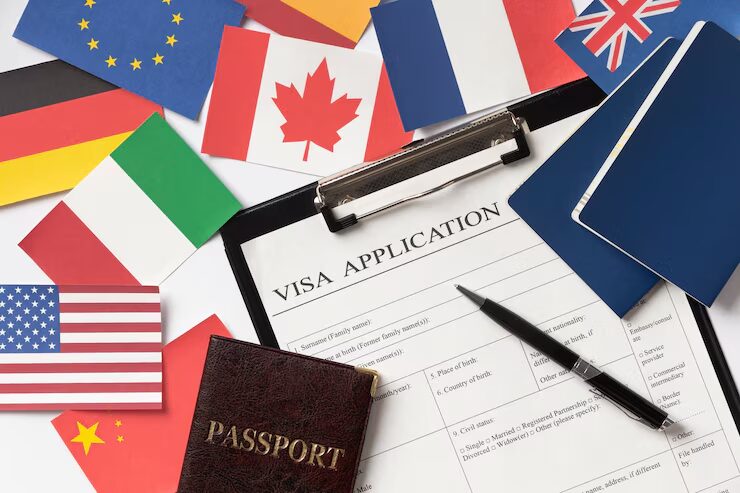How Does Family-Based Immigration Work?
There are several options for obtaining a green card to become a lawful permanent resident in the United States, but the most common is through family and work. While both immigration methods allow legal access into the country, each approach has different rules and requirements. A skilled person can explain the differences.
Family-based immigration entails entering the US legally through another US citizen or a lawful permanent resident who sponsors your family visa. With the help of an immigration attorney in San Jose, this type of immigration can reunite families, enabling them to live together in the United States.
Filing a Petition for a Family-Based Visa
If you have a relative who is a US citizen, they can file a petition for you if you’re their spouse, parent, child, or sibling. Lawful permanent residents can only petition for their spouse and children. The most popular form to file is the I-130 which indicates that a person qualifies for immigration benefits by being related to a US resident or citizen.

If the applicant seeks to adjust their status, they would also need to fill out form I-485 to file a petition for the adjustment of status application. Other important documents that must be filed with the immigration are:
- An affidavit of support: It proves you won’t become a public charge to the US once you migrate into the US.
- Application for employment authorization and travel permit: This should be filed in the context of an adjustment of status
- Form DS-260: You must file this if you’re going to your local consulate to obtain the visa.
The process can be lengthy and confusing if you don’t know what’s expected of you. Consult a family-based immigration attorney in San Jose for legal counsel. They can also help you apply through your US citizen or LPR relative living in the United States.
Eligibility for Family-Based Visa
Only a foreign national can apply for a family-based visa. The US citizen or LPR sponsoring the applicant must be a spouse, parent, or fiancé (if they can show they will get married within 90 days after the fiancé enters the US) or sibling of the applicant, depending on their status.
If you’re an aunt, niece, nephew, uncle, cousin, grandfather, or grandmother of a US citizen, you don’t qualify for a family-based visa based on a “family relationship.”
Additionally, you don’t qualify for a green card if you’re the parent, sibling, or fiancé of a green card holder living in the United States. The US Congress has a strict definition of what constitutes a family in immigration.
Several reasons would disqualify some US citizens from sponsoring their family members. Such include tax evasion, failure to pay child support, previous criminal record, low income, and past marriage fraud. Consult a skilled family-based immigration attorney in San Jose for help if your application has been denied.
What is Employment-Based Migration?
If you don’t have what the US Congress considers a “family relationship” with a US citizen or a lawful permanent resident, you may obtain a green card through an employer in the United States to allow you to work in the country.
Much of the immigration process is handled by your employer. The visas can be temporary or permanent, and the number of visas available each year is limited.
How Employment-Based Immigration Visas Work
The employer offering you a job in the US will request a prevailing wage determination (PWD) from the Department of Labor in the US. They will advertise the position in good faith and recruit to determine that no qualified US worker fits the role well. The company will then file a PERM labor certification application online.
Be prepared to wait, as the process can be lengthy, taking up to 180 days and a few other days or weeks for the visa to become available. Once your visa is ready, you must file a green card application and attend an interview at your local US embassy if you’re not already in the United States.

You will be granted a visa upon completion of the interview. If you need clarification about any part of the process, contact an experienced San Jose immigration attorney for legal counsel and guidance on preparing for the interview.
Priority Workers
In obtaining a green card through a job offer from a US-based employer, you will be classified as a priority or a non-priority worker. A priority worker is an employee with a specialty, high skill level, and competence in a specific subject. Examples are researchers, outstanding professors, internationally recognized artists, and people with international experience.
These workers, known as employment first preference, have a more straightforward immigration process. They don’t have to undergo the complex labor certification process and may not need a job offer to get an employment-based visa. The Department of Labor has already determined nobody else can do their job.
Non-Priority Workers
Workers offered jobs that require graduate degrees and years of experience may be eligible for immigrant visas under the employment second preference category.

However, they must first acquire the Department of Labor certification, indicating that no qualified US worker is available for the position.
Unskilled workers and those without a university degree may also qualify for an employment-based visa under the employment third preference category. These include factory workers, domestic workers, plumbers, and carpenters.
Comprehensive Immigration Services From an Experienced Professional
If you’re considering migrating to the United States, consider a family or employment-based visa, depending on your circumstances. An immigration lawyer in San Jose can provide all the legal information you need concerning the two types of immigration processes. They may also be able to help with your immigration application.
Our family-based immigration lawyer in San Jose strives to keep families together through the immigration process. Trust us to evaluate your application and intervene to make the process less intimidating and frustrating. Call Sadri Law, PC, at 408-402-4967 to talk to a dedicated immigration attorney.






